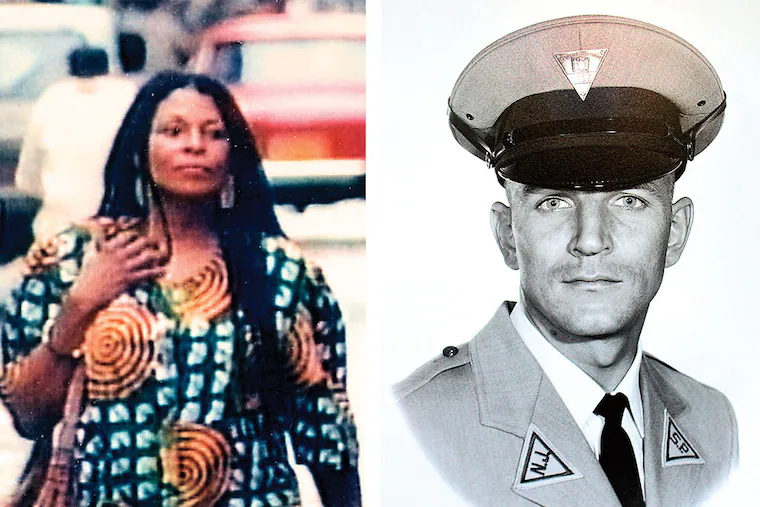By New Statesman
Copyright newstatesman

After the most recent of its many avoidable mistakes and speculation over internal Labour Party machinations, the core of the government’s problem may well have been summarised by one sentence: “McSweeney is the most eloquent strategist Starmer has” (Andrew Marr, Inside Westminster, 19 September). If Labour’s strategy is to appear to have absolutely no strategy, look inept, be driven by the news, bandwagon-jump on the response to the latest TV drama, squander a huge majority and leave the country in a worse place in every respect, it is doing a blindingly good job.
There are several things the government could do to address this. Not all would be popular with everyone, but all are morally right. Tax capital gains at the same level as income. Get rid of the triple lock and tie pensions to inflation. Address the increased benefits cost, which is substantially driven by the 800,000 extra people claiming sickness benefit post-Covid. If your backbenchers don’t support these changes, work with the other parties to drive them through. Start showing some backbone, and stop making so many very stupid mistakes.Andy Leslie, West Grinstead, Horsham
Ed Davey’s double vision
Many people on the left will be inclined to ignore the Liberal Democrats (Politics, 19 September). It is worth reminding ourselves that in a two-party system when one major party collapses, another must fill the void. The challenge is whether Reform or the Lib Dems will occupy the space vacated by the Conservatives.
It is ironic that Ed Davey criticises Keir Starmer for lacking a vision when the same applies to Davey himself. He has raised several major issues including social care, Britain’s relationship with Europe and the government’s proposed welfare reforms. But these remain individual concerns. The Lib Dems have not been able to construct a coherent narrative around the nature of change they want for the country.
The Lib Dems have an opportunity to learn from Labour’s mistakes and to mobilise a proportion of the population behind an effective vision, underpinned by realistic policies that involve tough decisions. If they do, they could be the real opposition and a government in waiting.Paul Lally, Liverpool
Inclement politics
I was greatly moved by John Attlee’s reverence for his grandfather Clement Attlee (Interview, 19 September). “Clement Attlee” is always my response to the question: “Who’s your favourite prime minister?” However, I was then left feeling rather dejected at the contrast between the highly disciplined Labour Party of the late 1940s and the ineptitude and division of the current iteration. Starmer’s inability to govern effectively is invariably linked to his lack of skill and instinct. Unlike Attlee, he cannot “do politics well”; he is also devoid of any “coherent political philosophy”.Charles Wawn, Coventry
Second chances
Geva Hill argues that the single-transferable vote is “fully proportional” (Correspondence, 19 September). But the usual counting procedure fails to take account of the second choices of voters who give their first choice to the runner-up. Putting them into a final count produces a more “proportional” and usually very different result.Bill Myers, Leicester
Not far enough
William Dalrymple provides an excellent analysis of Britain’s role in creating the conditions for Israel’s current genocide and our government’s ongoing complicity (Another Voice, 19 September). However, his conclusion that “we must dream of a Palestinian state alongside Israel” doesn’t follow. The problem is Israel, not Palestine. A Palestinian state on the 1967 borders would give fewer than half of the Palestinian people sovereignty over a fifth of the land.
Recognising a Palestinian state, as the UK government has now done, is largely symbolic and, as Dalrymple says, “should be only the beginning of the process of redress for our past betrayal”. The UK should follow this up with sanctions against Israel and recognise the right to self-determination of all the Palestinian people, including the six million refugees, whose right to return must be honoured.Eurig Scandrett, North Berwick
The not-so-special relationship
I always enjoy the detailed information and analysis that Will Dunn brings to a subject (Blue Sky Thinking, 19 September) and his latest piece on American ownership of the UK economy was incisive. More of him, please! However, the cover article about an American mayoral candidate, yet more about Charlie Kirk, and an article about an American musical shows that the US now appears to own our imagination as well.
I would say the UK’s culture and political structure has far more in common with European social democracies than with America, and they have far more to teach us. I welcomed the articles about Leo Varadkar and fractured France (The New Society, 19 September) and I hope you will publish more articles in future exploring European politics and culture.Stephen Lismore, Chesterfield
Back to basics
In his Diary entry (12 September), the new Green Party leader, Zack Polanski, commented that “the Green Party has always stood shoulder to shoulder with exploited workers and the unions that support them. If our politics isn’t rooted in solidarity with them, then what’s the point?” A noble sentiment, but is there not something else in which Green politics is more fundamentally rooted?
Many Greens argue that climate justiceis achievable only through social justice. There is merit in this argument, but equally there is a risk – especially with the growing numbers of new party members looking for a home on the left more than a commitment to tackling the climate crisis – that the party’s primary purpose is neglected in the rush to embrace a leftist “eco-populism” that attempts to counter Reform.
It’s not hard to see the eco element of eco-populism being left behind and, conversely, the Green Party’s ability to appeal to a wide range of people concerned about environmental issues restricted. As a long-standing if quiescent member of the party, this troubles me greatly. Perhaps Polanski is the first political leader whose vibe is loosely inspired by the words of Mick Shrimpton, Spinal Tap’s erstwhile drummer: “As long as there’s sex and drugs, you know, I can do without the rock ’n’ roll.”Mark Anstee, Huntingdon
Pleading her belly
Faye Curran’s Special Report (12 September) is a terrible indictment of our criminal justice system. I was put in mind of Daniel Defoe’s novel Moll Flanders. Moll is born only because her pregnant mother’s death sentence is commuted to transportation after she “pleads her belly”. Later, Moll herself similarly escapes a harsher punishment. The novel was published in 1722, about a life set some 100 years earlier. Seemingly this aspect of penal policy was more enlightened four centuries ago.Alan Parker, Shirley, Croydon
Age and dependency
Rachel Cunliffe (Future Perfect, 19 September) repeats the widely discussed fact that the dependency ratio is at its highest ever and rising. This is only true if it is defined as persons over the age of 65 divided by persons of working age. If instead it is defined as persons within ten years of life expectancy divided by persons in the workforce it is at its lowest ever and falling. This is due to the higher rates of female participation and working pensioners. The key is that healthy life expectancy should rise in line with life expectancy. The problem that they are starting to diverge is much more serious than an ageing population, per se.Stephen J Watkins, vice-president, Doctors in Unite
Human touch
When I was bishop of Oxford, the vicar of Littlemore, Cardinal Newman’s old church, commissioned Arvo Pärt (The New Society, 12 September) to set his “Lead Kindly Light” to music. You can imagine my feelings when, at the reception, this world-famous composer knelt at my feet and kissed my episcopal ring. I was even more astounded to learn that the following day, when being shown round Oxford, Pärt having given some money to a beggar then knelt quietly before him to ask for his blessing.Richard, Lord Harries of Pentregarth
Along for the ride
Loving the new editorialisation. Cheeky, clever, fun Finn McRedmond. Bold Rachel Cunliffe… and on we go, feeling the ride. Goodness me!Cecilia Harrison, Nottingham
Write to letters@newstatesman.co.ukWe reserve the right to edit letters



